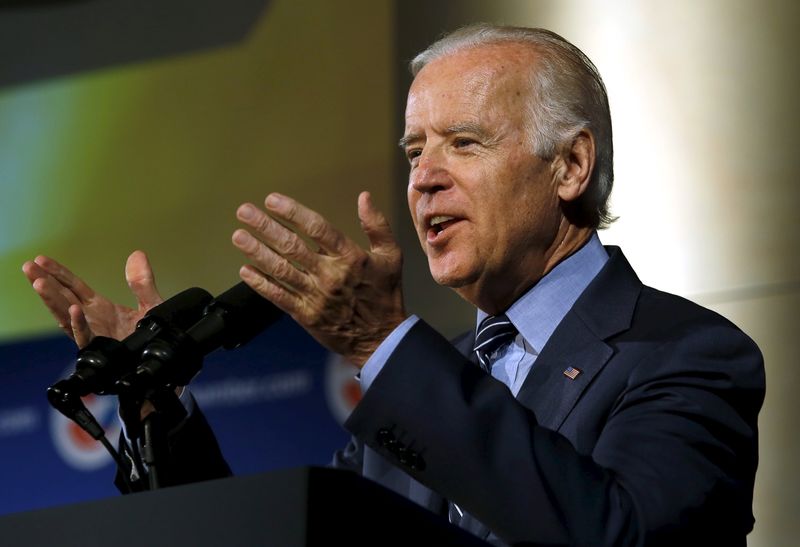By Patricia Zengerle and Idrees Ali
WASHINGTON (Reuters) - Democrats in Congress said on Wednesday they were warming to the nuclear agreement with Iran, and Vice President Joe Biden, sent to Capitol Hill to pitch the deal, said he was optimistic it would not be blocked by the majority Republicans who oppose it.
"I think we'll be all right," Biden told reporters after a closed meeting with Democrats in the House of Representatives.
Obama has said he will veto any "resolution of disapproval" if it is passed by Congress. Passage of such a resolution would cripple the agreement, reached by six major powers and Iran, by barring Obama from waiving most U.S. sanctions on Tehran.
The Democratic president would need support from only 34 of the 100 senators to sustain his veto and protect the deal, and the Senate Democratic caucus has 46 members. To override a veto, Republicans would need a two-thirds majority in both the Senate and the House, where Republicans hold a larger majority. Presidential vetos are rarely overridden.
Democrats said they would examine the agreement but were generally positive.
"I'm hopeful that (the deal) is going to draw pretty significant support from the caucus," Democratic Senator Chris Murphy told reporters. "I haven't seen anything in anything I've read so far that would mean I would oppose it," Murphy said.
Biden assured the Democrats that nothing in the pact would preclude the use of force if Tehran violated the deal. Many congressional Democrats are more hawkish than the Obama administration is toward Iran.
Biden plans to return to the Capitol on Thursday to meet with Democratic members of the Senate Foreign Relations Committee.
DEMOCRATIC LEADERS ARE NON-COMMITTAL
The top Democratic leaders have been non-committal. The party's Senate leader Harry Reid called for a "thoughtful, level-headed" review. House leader Nancy Pelosi said she believed "aggressive restrictions and inspections offer the best long-term plan to stop Iran from building a nuclear weapon."
Obama insisted to a nationally televised news conference on Wednesday that the landmark agreement was the only alternative to a nuclear arms race and more war.
The White House is engaged in an intensive campaign to ensure Democratic support. Congressional aides said Secretary of State John Kerry would testify to the Senate Foreign Relations and House Foreign Affairs Committees next Thursday.
"I just think (Obama) feels like this is dramatically better than the alternatives and that at the end of the day, Congress will see that," Senator Tim Kaine said. He said he has questions about the inspections regime and sanctions relief.
"I am proud of the president on this issue ... I lean to a 'yes' right now," Representative Bill Pascrell said after the Biden meeting.
Under legislation Obama signed in May, the House and Senate have 60 days to approve the deal, back a resolution of disapproval or do nothing and allow it to take effect.

The 60-day window is expected to open this week, when Congress receives the agreement and supporting documentation.